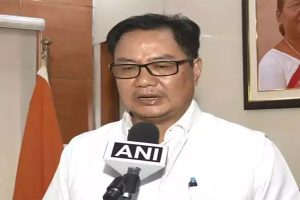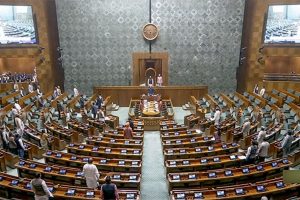Prime Minister Narendra Modi’s interaction with Russian President Vladimir Putin has captured global attention, underscoring the complexities of international diplomacy in times of conflict. Mr Modi’s emotive reference to the tragic deaths of children in Ukraine, occurring during his visit to Moscow, reveals a significant and nuanced stance from India, balancing its strategic interests with a moral appeal for peace.
Mr Modi’s remarks are striking, not only because of their timing but also due to the context in which they were made. By expressing deep sorrow over the deaths of innocent children, the Prime Minister delivered an implicit rebuke to Mr Putin, a rare move for a leader of a nation that Russia considers a friend. This moment highlights the intricate dance of diplomacy, where words are carefully chosen to convey a message without severing ties. India’s relationship with Russia is a testament to the enduring complexities of geopolitics.
Advertisement
Historically, India has maintained a neutral stance, refraining from condemning Russia’s actions in Ukraine and opting instead to leverage opportunities like discounted oil amid Western sanctions on Moscow. This pragmatism has drawn criticism, particularly from Western nations, yet it reflects India’s strategic calculations to secure its energy needs and bolster its economy. However, Mr Modi’s recent comments signify a subtle yet important shift. By articulating his sorrow over the loss of innocent lives, Prime Minister Modi aligned himself with the global humanitarian discourse, subtly reminding Russia of the broader human costs of its actions.
This move not only aims to project India as a credible mediator but also seeks to restore the international community’s faith in India’s commitment to peace and the principles of the United Nations. For Russia, the deepening ties with India are crucial as it faces increasing isolation from the West. The emphasis on economic collaboration, from nuclear energy to space exploration, underscores Russia’s strategic pivot towards Asia, seeking reliable partners to mitigate the impacts of Western sanctions. Mr Modi’s visit, thus, serves as a reaffirmation of this partnership, even as it introduces an element of moral scrutiny.
The broader implications of Mr Modi’s remarks are significant. They highlight the potential role India could play in mediating the Ukraine conflict. As a major global player with longstanding ties to both Russia and the West, India is uniquely positioned to advocate for peaceful resolutions. Mr Modi’s statement, suggesting that solutions cannot be found on the battlefield, but only through dialogue, reinforces this potential.
Moreover, the timing of Mr Modi’s remarks, juxtaposed with his visible camaraderie with Mr Putin, adds a layer of diplomatic sensitivity. It sends a message that while India values its partnership with Russia, it does not condone actions that result in the loss of innocent lives. This delicate balance of affirming strategic ties while advocating for humanitarian considerations is a hallmark of nuanced diplomacy. This nuanced stance not only reaffirms India’s moral position but also enhances its credibility on the global stage.










